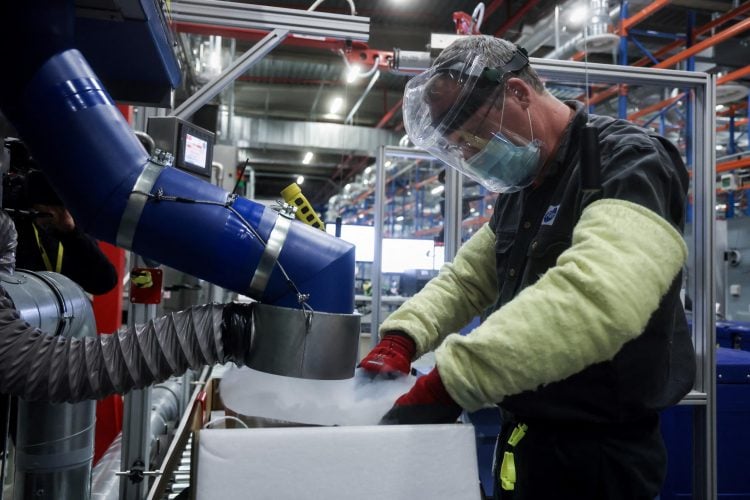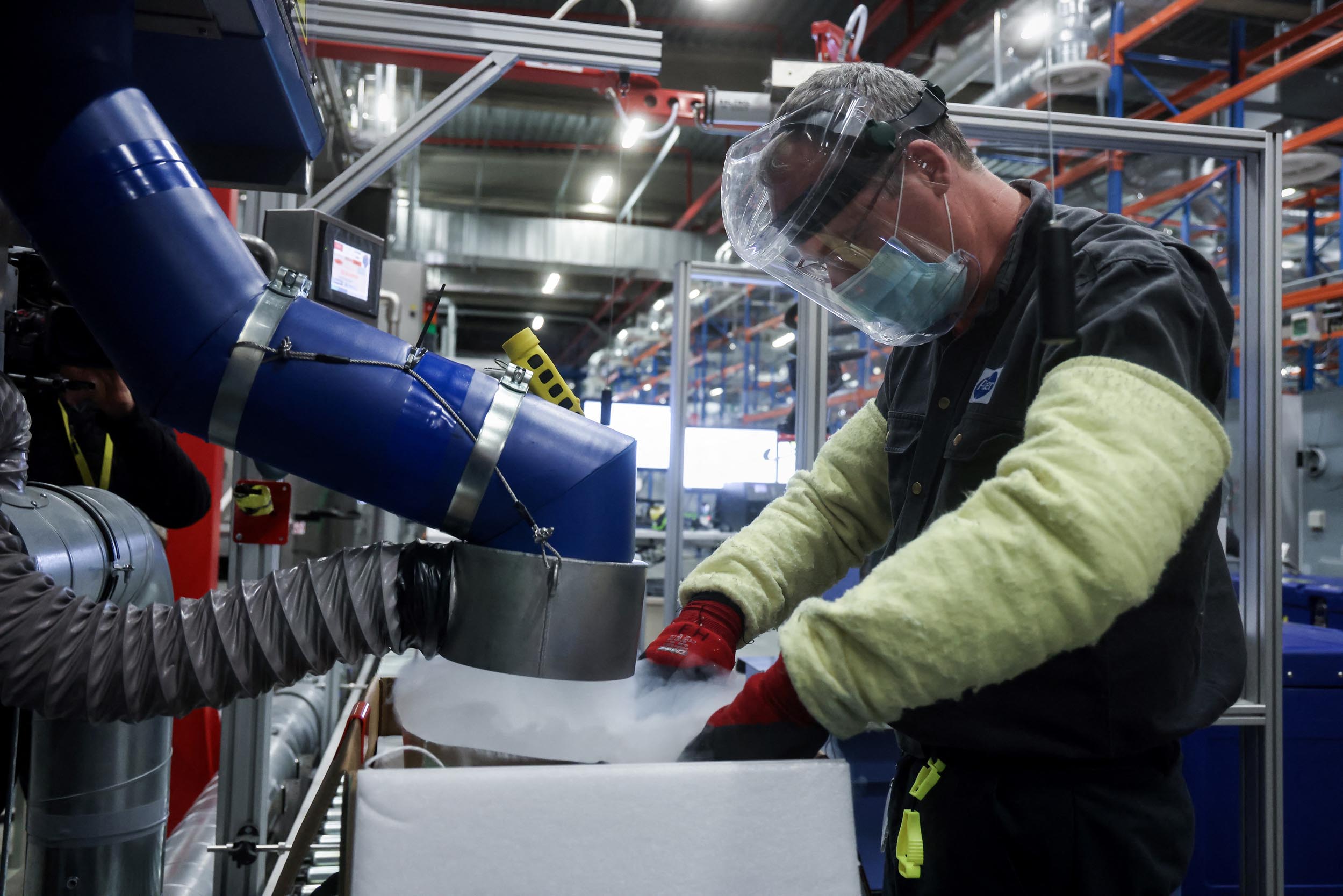
Industry players are confident South Africa can handle the mammoth task of distributing the 4.5 million doses of Pfizer’s Covid-19 vaccine.
This as concerns abound over the delicacy with which these doses have to be handled, as they require cold storage at -70 degrees celsius and each dose must be used on the day it is thawed.
For a country already challenged by a scattered rural population and sketchy power supply, some have suggested the two-dose vaccine may pose some logistical conundrums.
ALSO READ: Mkhize says SA already in third wave of Covid-19 pandemic – report
Virologist Jo Barnes has expressed concern that given the amount of vaccines that will have to reach rural areas, South Africa may not be acting fast enough to make sure that Pfizer vaccine doses won’t go to waste as a result of poor logistical planning.
“In India, there are whole villages wiped out by Covid-19 as a result of similar conditions. What makes the issue more urgent is that the Pfizer vaccine is a two-dose vaccine which requires storage at -70 degrees celsius. The real challenge will be making sure that distributors are able to deliver the second doses on time and to the same people two weeks later.”
At this stage, the Department of Health is the only buyer of vaccines into the country. Vaccines are stored at a central distribution warehouse near OR Tambo International Airport. Both the private and public sector will source the vaccine from the central distributor for distribution to registered providers for administration.
A number of multinationals which operate in South Africa’s logistics industry have now come to the fore with solutions at the ready.
ALSO READ: Ramaphosa’s vaccine manufacturing plans not really feasible
Last month, DSV Healthcare, a division of logistics multinational DSV, announced it was awarded the tender from the Department of Health to distribute the Pfizer/BioNTech Covid-19 mRNA vaccine to vaccination centres across South Africa. This tender is shared with The Biovac Institute, a public-private partnership.
The company will be using its existing infrastructure to provide the services alongside the department.
Managing director of DSV Healthcare, Anthony Diack, claimed the company had well-developed infrastructure and cold-chain capabilities and was up to the task.
“The extremely low temperatures at which the Pfizer vaccine needs to be handled are, of course, a challenge which supports the need for the appropriate cold chain capabilities and a well-developed certified distribution network”, said Diack.
“DSV has one of the largest GDP [Good Distribution Practices] compliant cold rooms in the Southern Hemisphere and has spent many years investing in South African infrastructure and developing these specialised handling skills for both 2°C-8°C and -7°C, so I am confident we can bring the vital doses to the communities safely and securely.”
ALSO READ: Covid-19 vaccine distribution – All in a day’s work says Biovac CEO
DSV has been approached by cold storage multinational Thermo King, which has developed specialised cold storage and transport units for Covid-19 vaccines.
The company’s head of sales transport cooling technologies, Mark Coetzee, said the company had been in contact with the Department of Health and various large pharmaceutical companies, presenting its full range of solutions.
“We have a container which is the only large container worldwide capable of maintaining temperatures of -70°C. This container has a self-contained generator that makes the unit fully operational in any conditions including remote areas without electricity,” said Coetzee.
“All our solutions use GPS technology where users can track and trace 24/7 the visibility and a variety of factors that impact the vaccine integrity, from door openings and temperature of the loads, thus demonstrate an audit trail of temperature compliance and asset security this information can be remotely monitored, and full reports generated.”
Now that the first two tranches of doses have arrived over the past week, samples are expected to be sent for testing at the South African Health Products Regulatory Authority (Sahpra), followed by issuance of Stability Certification which will kick off the distribution of the first doses.
Regulatory concerns
Coetzee said regulations and international standards on cold storage needed to be met in order keep doses in the optimum environment.
“All our units are fully GDP and GMP verified and compliant according to EU regulations these regulations should be independently verified by qualified third-party specialist. This is to ensure that cooling units can maintain the correct temperature’s including humidity levels throughout the pharmaceutical product’s transportation,” he said.
These regulations are also stipulated according to the Medicines Control Council and apply to any pharmaceutical product that is required to be kept and transported at a specified temperature.
Unfortunately, he added, there were currently many companies in South Africa transporting pharmaceutical products in transport cooling units that did not meet these requirements, which could impact the efficacy of the products.
simnikiwe@citizen.co.za

